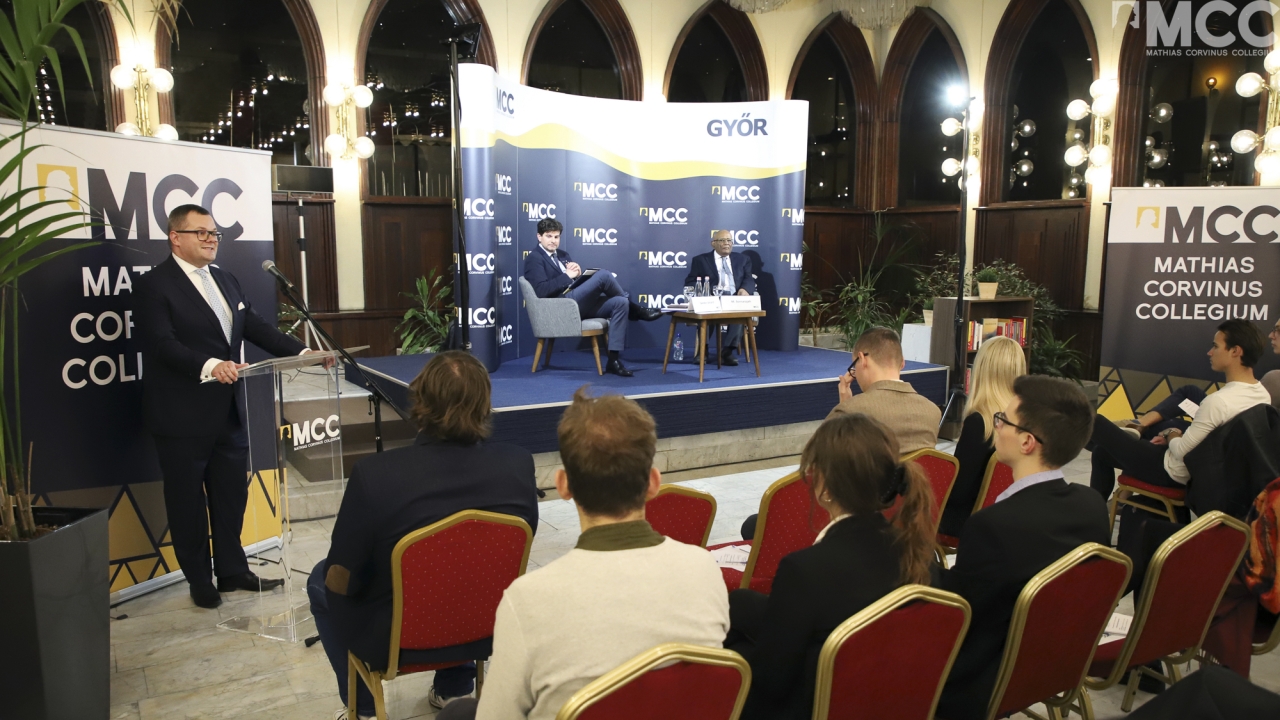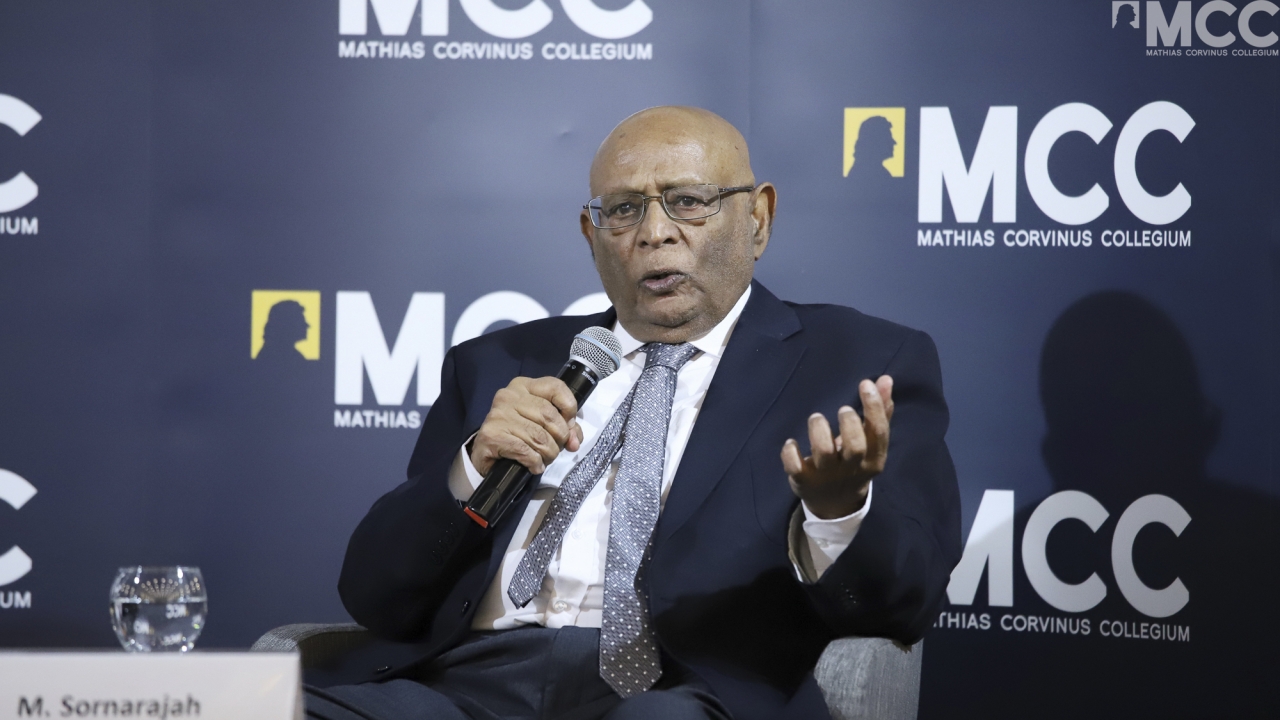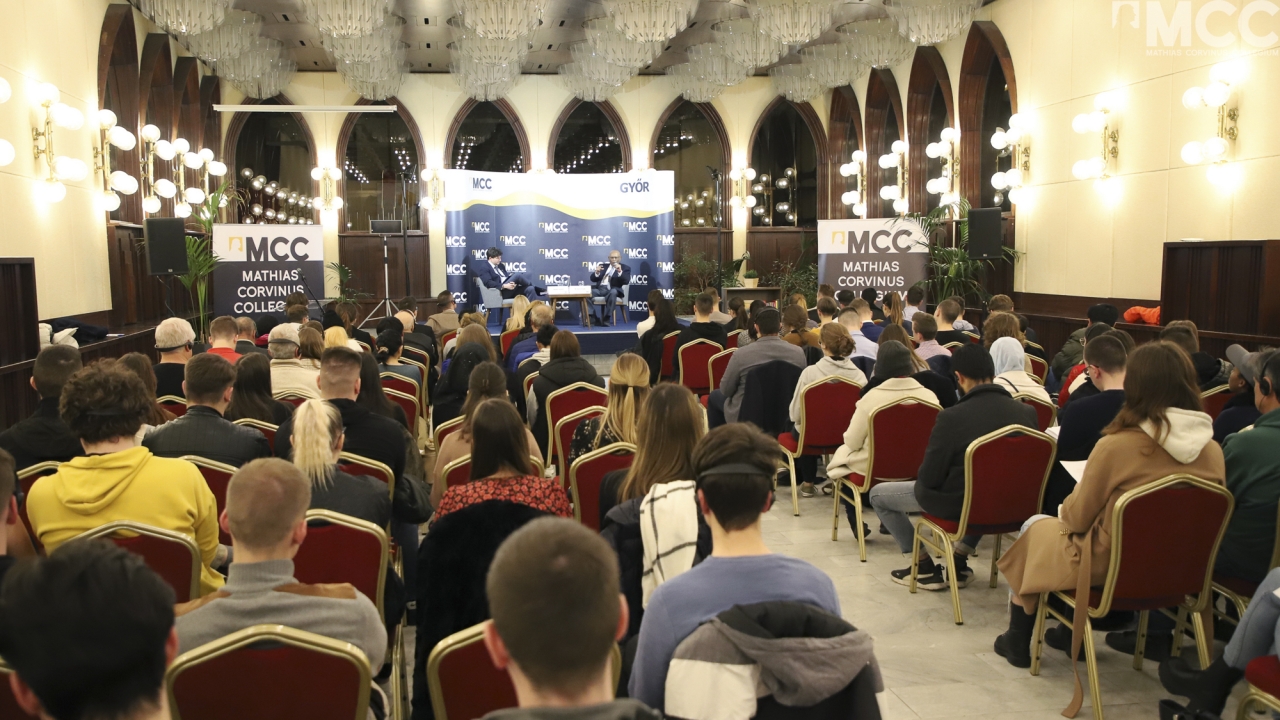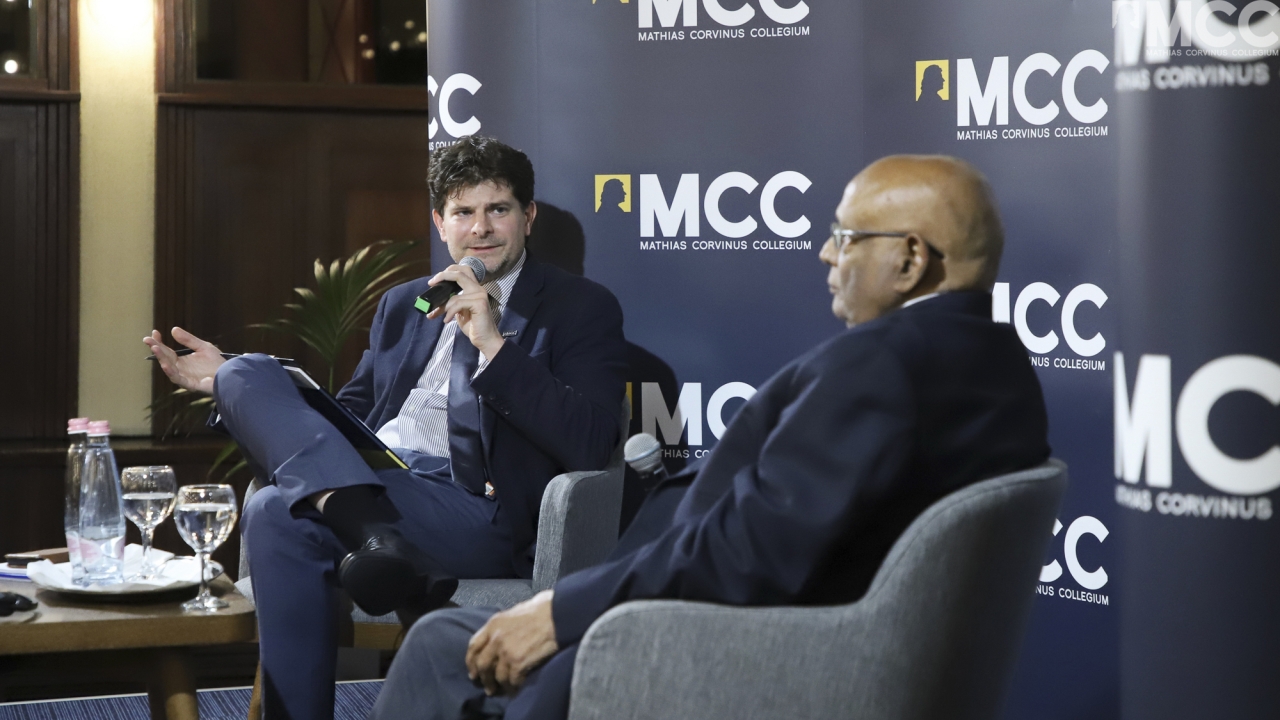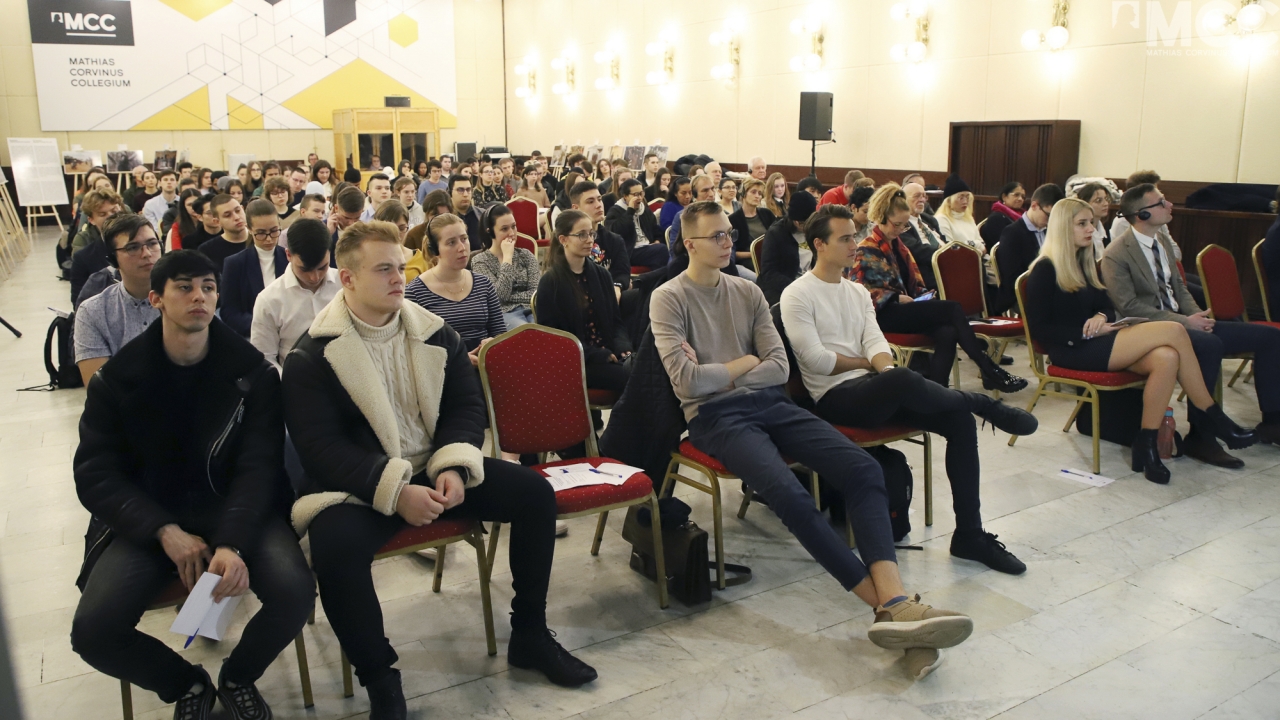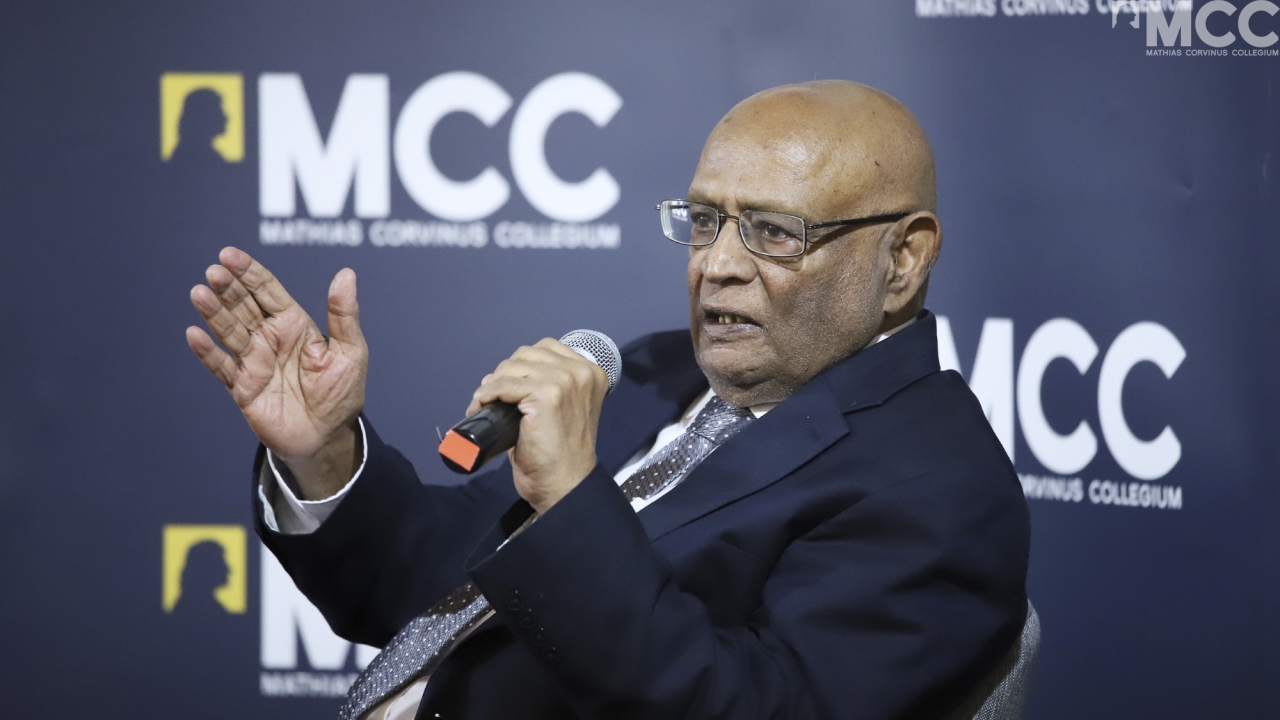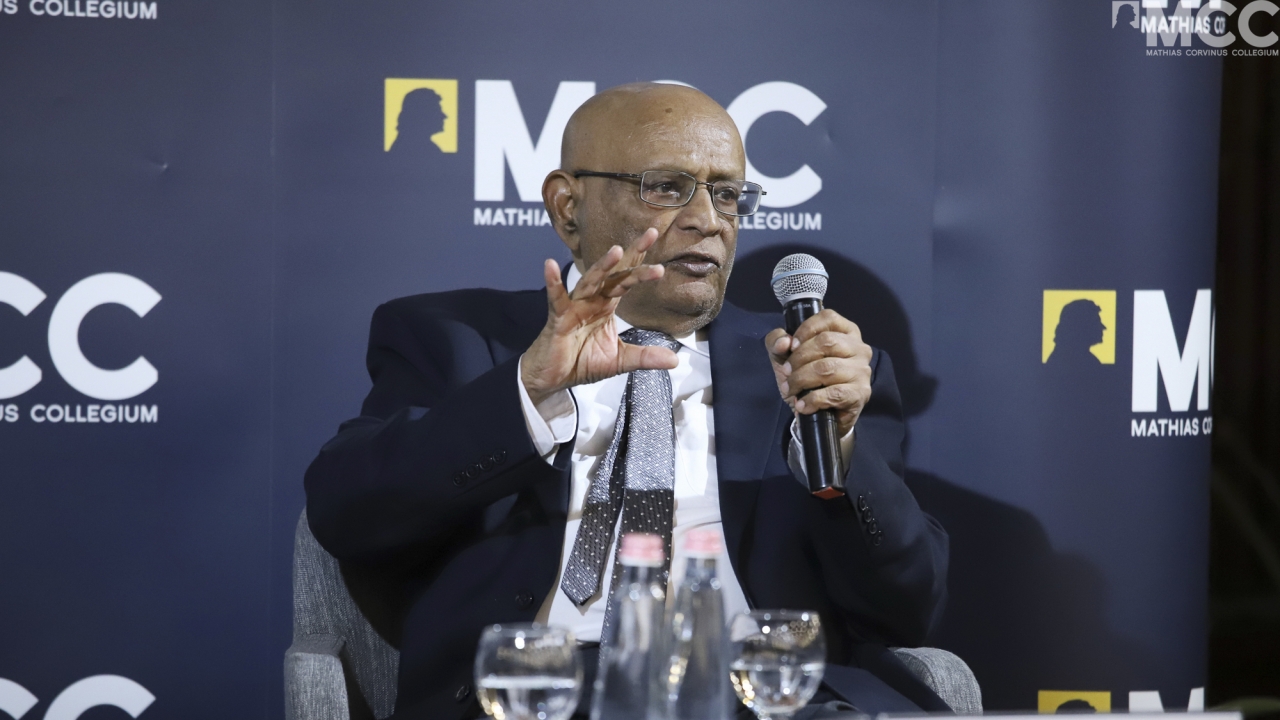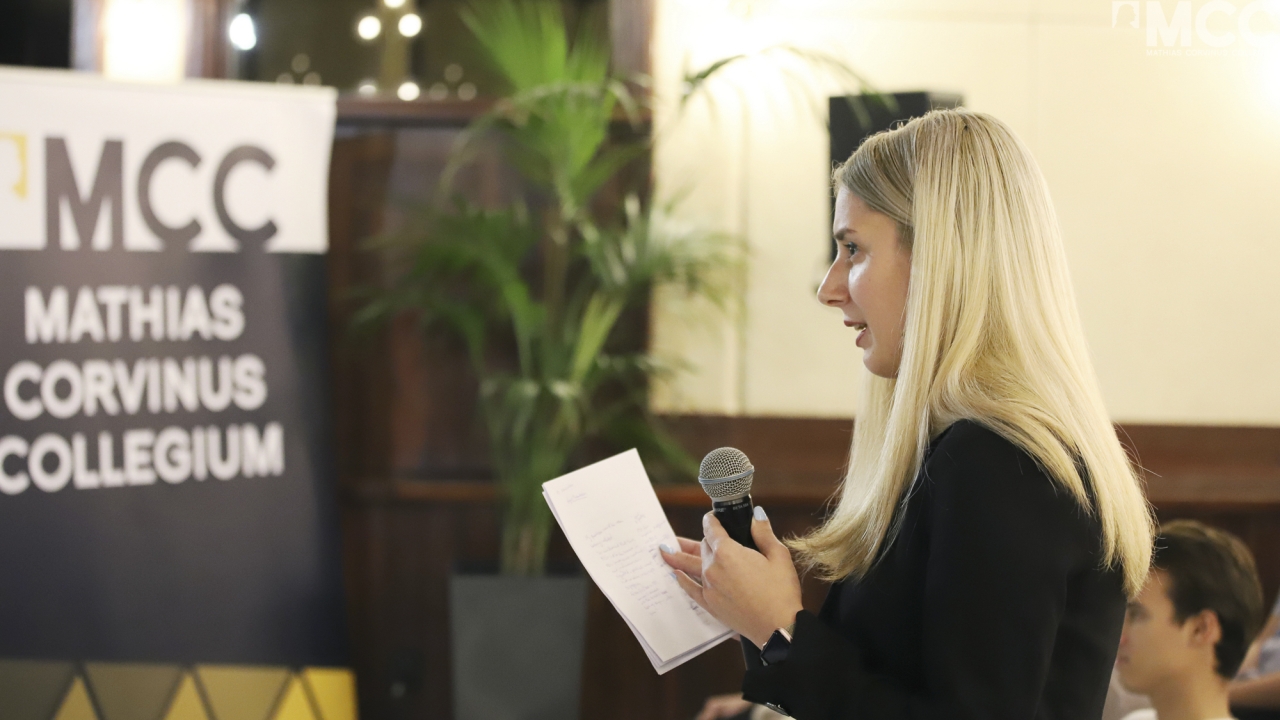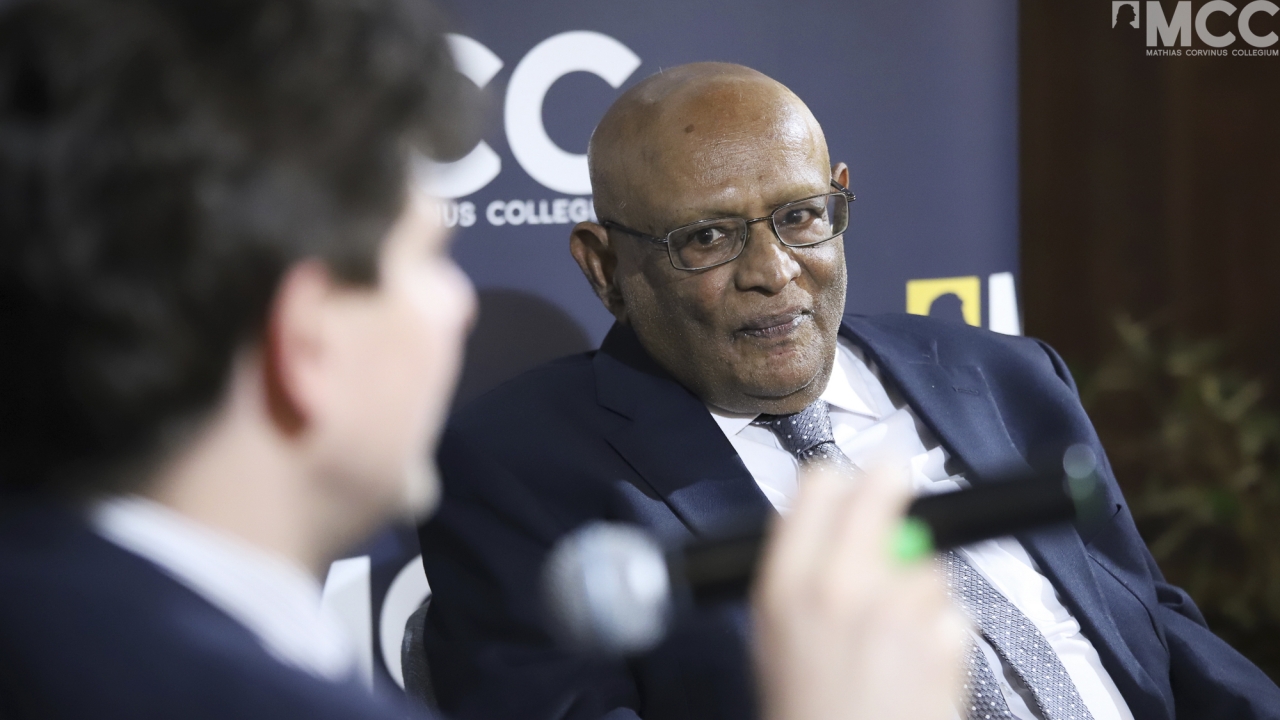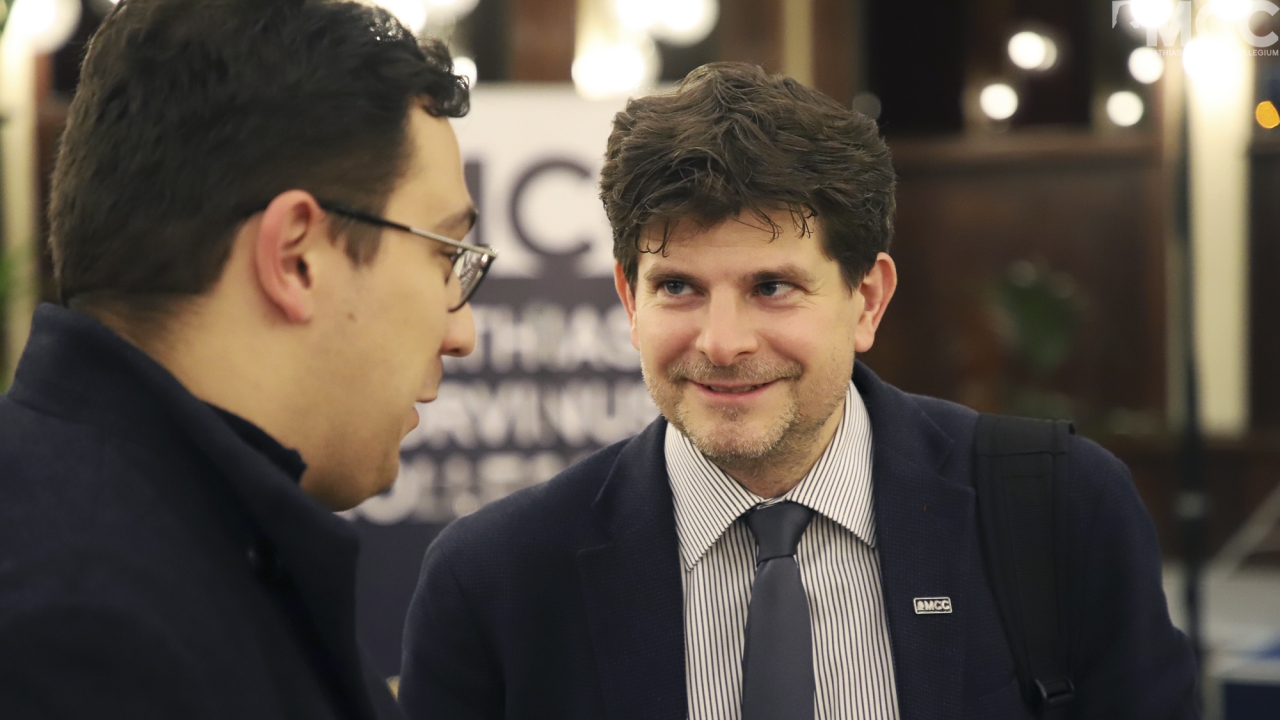Reading time: 2 minutes
In the course of the change of regime, the Central European countries uncritically accepted the neoliberal economic dogmas and rushed to join the globalizing world economy. However, in many cases, this has led to disappointment, because globalization does not offer equal opportunities – Professor M. Sornarajah the world-renowned international law professor at the National University of Singapore pointed out in a conversation with Lénárd Sándor, head of Center for International Law at the MCC in an event organized by the regional MCC Center of Győr.
At the beginning of the event, Lénárd Sándor quoted an observation of the New York Times from 1992 about the „Wall Street Brigade” and Czechoslovakia: „Nowhere else have Americans managed to reach a position of such decisive influence in the conversion of an economy”. In this regard, Professor Sornarajah emphasized that by adopting the principles of the “Washington Consensus”, the Central European countries applied the so-called “shock therapy” and quickly liberalized, deregulated, and privatized their economies and markets during the system change. This is well illustrated by the fact that these countries have already started to conclude their investment treaties since the mid-1980s, long before their international human rights or European association agreements.
However, in contrast to the original expectation, the rapid transformation of these economies has led to disappointments in many cases in this region, while the investment agreements quickly eroded the economic sovereignty of the Central-European countries. These treaties exposed the Central-European countries to extremely costly international litigations in which the transitional nature of their economies, in many times, were not taken into consideration and their efforts to adopt public interest regulation had been thwarted. The Central-European countries need to shape their trade and investment relations with their own economic interests in mind. Based on questions from the audience, the conversation also highlighted the possible and necessary treaty reforms as well as whether the European Union’s common trade policy that also covers investment treaties is beneficial for the Central-European countries.
